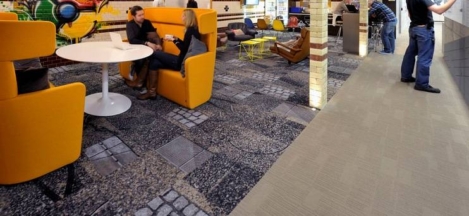March 23, 2016
The choice of a clear or messy workplace is an expression of personality 0
 When it comes to each individual’s working space and workstation area, a question that is always worth asking (and often is) is whether it is best to back off and let people customise their immediate surroundings to fit with their own tastes and needs or whether a company-wide tidy desk policy and uniformity of approach be imposed to protect a specific look and standard. One factor that is relevant is that there seems to be a pendulum swing between aesthetics and wellbeing going on at the moment, with many companies going back and forth in pursuit of the best approach. A study, conducted a few years ago by psychological scientist Professor Kathleen Vohs, along with a number of other researchers from the University of Minnesota, considered the behaviour of people working on both messy and clean desks and found that the individuals working in messier spaces came up with more creative and interesting results in their work overall.
When it comes to each individual’s working space and workstation area, a question that is always worth asking (and often is) is whether it is best to back off and let people customise their immediate surroundings to fit with their own tastes and needs or whether a company-wide tidy desk policy and uniformity of approach be imposed to protect a specific look and standard. One factor that is relevant is that there seems to be a pendulum swing between aesthetics and wellbeing going on at the moment, with many companies going back and forth in pursuit of the best approach. A study, conducted a few years ago by psychological scientist Professor Kathleen Vohs, along with a number of other researchers from the University of Minnesota, considered the behaviour of people working on both messy and clean desks and found that the individuals working in messier spaces came up with more creative and interesting results in their work overall.




































March 23, 2016
Is discrimination of women with children the root cause of gender pay gap? 0
by Sara Bean • Comment, Flexible working, Legal news, News, Workplace
(more…)